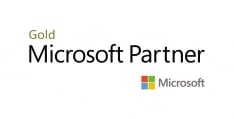New York City is the biggest city in the United States. It is the most populous urban agglomerations in the world. New York is often described as the cultural and financial capital of the world. Education in the USA is provided by both public and private schools, and is mandatory until the age of 16. Pupils conducting their schooling within the USA start off at preschool, followed by elementary school, then middle school, before finishing at high school. At age 18, US citizens are able to engage in higher education. Higher education in the USA normally comes in the form of a college, undergraduate school, or a community college – that latter of which doesn’t normally cost anything to attend. Candidates participating in a course at a college will gain credits towards a bachelor’s degree, whilst candidates participating a course at a community college will be earning credits in order to achieve an associate’s degree. The public school system is run by the New York City Public School board. It is the biggest school system in the United States. They serve approximately 1.1 million pupils in 1,700 schools. There are nine special schools for those who are academically or artistically gifted. There are approximately 900 additional privately-run secular and religious schools in the city. There are roughly 600,000 students in New York that are enrolled in one of the 120 higher education institutions. There are a number of notable universities in the City of New York. These include: Columbia University, New York University and the New York Institute of Technology. Columbia is the highest ranked New York University in the world rankings, coming in at number 22. It is a private Ivy League research university that has twenty school including Columbia College, the School of Engineering and Applied Science, and the School of General Studies. New York is also home to a number of specialist art schools such as the world renowned Juilliard School that specialises in the performing arts. At The Knowledge Academy we offer over 50,000 classroom based training courses in the United States, including popular locations such as New York.
Free Wi-Fi
To make sure you’re always connected we offer completely free and easy to access wi-fi.







































 Back to course information
Back to course information




 If you wish to make any changes to your course, please
If you wish to make any changes to your course, please

